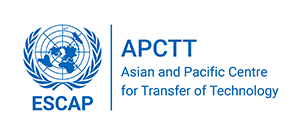Underwater Plasma Technology For The Removal of Dissolved Organic Content of Industrial Waste Waters
Waste waters that contain dissolved organic materials are produced in enormous quantities worldwide. Industrial waste waters that contain toxic organic components cannot be purified using conventional biological water treatment technologies. The toxic organic compounds are to be removed first using expensive separation technologies. The separated, toxic organic materials are usually incinerated in the end, resulting in a very expensive and complex water treatment technology. The offer of our client provides a new water cleaning technology called “underwater plasma technology”. The underwater plasma technology is a new technology for the “incineration” of liquid wastes containing hazardous organic components. The decomposition of the organic materials takes place in an electric plasma zone generated in diluted aqueous solutions. The water content of the liquid waste does not need to be evaporated, therefore, the energy consumption of the process is low compared to other combined separation-incineration processes. During the decomposition of organic materials mostly carbon dioxide, nitrogen and water are formed, while the inorganic salt content of the solution remains unchanged. The plasma zone is formed on the surface of submerged electrodes, based on the effect of alternating current and sufficient voltage. Because of an alternating current with a frequency of at least 10 Hz, electrochemical reactions can not take place, because of this reason hydrogen and oxygen is not generated. The decomposition of the organic components takes place because of the extremely high temperature and UV radiation of the plasma. This can be further intensified by adding oxidizing agents, preferentially hidrogen-peroxide.
Sector: Machinery & Equipment
Country: Hungary
Area of Application: Chemical industry: Cleaning of waste waters of the pharmaceutical and petrochemical industries, e.g. removal of mercaptane or methanol. Energetics: Decomposition of iron or radionucleide containing EDTA complexes that are generated in high quantities during the maintenance of nuclear power plants. Armaments industry: Elimination of biological and chemical warfare agents, e.g. bacteria and picric acid. Medical and sanitary applications: Desinfection of various effluents. Petrochemical industry: degradation of organic sulphur included in alkaline wastes, produced by the oil industry.
Keywords: Plasma, removal, organic waste, industrial waste water
Advantages: - The technology can be applied at explosion-prone areas. - The inorganic salt content of the solution remains unchanged (other solutions increase the salt content). - The technology presents a cheaper solution compared to other separation-incineration solutions in case of a small amount of organic components (incineration is unprofitable), or where environmental aspects do not allow incineration.
Environmental aspects: Cleaner Production
Development Status:
Legal Protection: Patent
Technical specifications:
Transfer Terms: Technology Licensing , Equipment Supply
Target Countries:
Estimated cost (US$):
Upload any relevant document:
Contact Person: Laser Consult Ltd (Hungary)
Address: H-6701 PO Box 1191.
City: Szeged
Country: Hungary
Zip/Pin Code:

